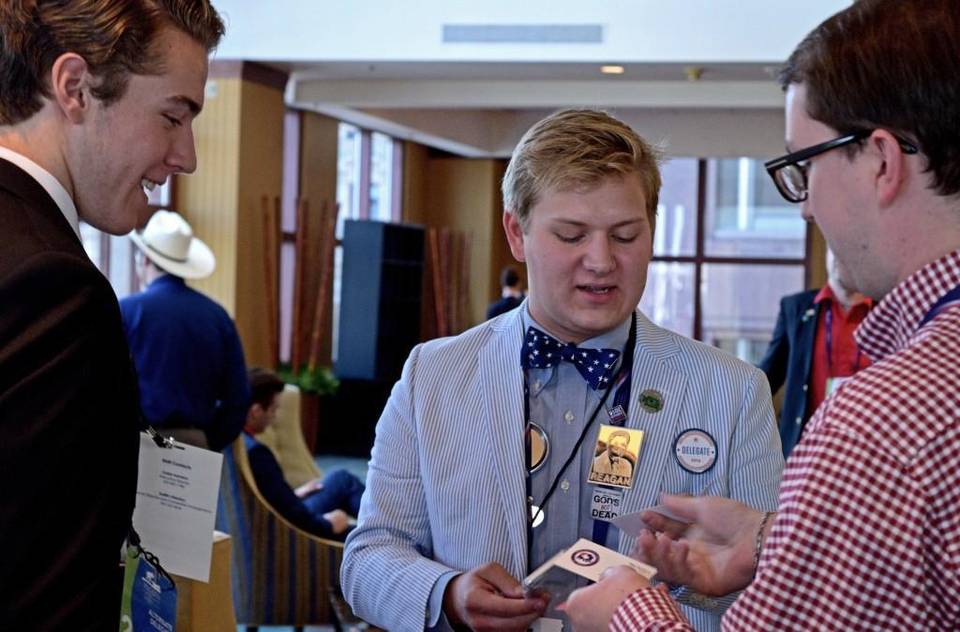CLEVELAND — Jack Pickett, the youngest delegate from Washington state to the Republican National Convention, wants to make the GOP a party for his generation.
The 18-year-old from Yakima sees a “bright future” for the GOP, but he worries about inflammatory, polarizing rhetoric coming from the Republican nominee.
“Right now, with Donald Trump as our nominee, (he) just doesn’t play well to our generation,” Pickett said.
He plans to vote for Trump because he can’t support Hillary Clinton, but called Trump’s nomination a “slap in the face” to the bipartisan values and patriotism of young delegates.
“His rhetoric is inflammatory, and he’s divisive, and that’s the reality,” Pickett said.
Pickett is among a handful of teenage delegates at the Republican convention, an event typically dominated by longtime, diehard GOP voters. He and other young delegates gathered Tuesday for a Youth Caucus event at the downtown Cleveland Marriott.
Youth are “about 2 percent of all the delegates but 20 percent of the American population,” Pickett said. “There is a very clear divide — very clear disenfranchisement and disengagement of youth.
“That’s why we’re here today at the youth caucus,” he said. “To organize millennials and to make sure our voice is strong here at the convention.”
Also at the Marriott was Jack Bell, an Olympia resident. He rose to the ranks of alternate delegate after impressing the crowd at the Thurston County Republican convention with a speech about maintaining conservative values among a majority-liberal peer group.
“I talked about being the only 18-year-old from Olympia High School with a Ronald Reagan poster,” Bell said.
The youth vote historically has the lowest turnout across all demographics. In 2012, only 40 percent of 18- to 29-year-olds voted in the presidential election, compared with 58 percent of all voters.
Bell said one of the biggest issues facing the growth of the party is engaging with those young voters. The Democratic party has the edge when it comes to reaching young people through social media, he said.
“That’s where they get most of their news,” Bell said. “So as a party we need to do a lot better job of reaching out to millennials.”
Pickett said the party’s success with his generation will depend in part on whether it focuses on compromise.
“We’re not interested in partisan politics, gridlock and disenfranchisement anymore and I think you’ll find that to be true of millennials on both sides,” Pickett said.
Pickett echoed the sentiment of some of his fellow Washington delegates, who were disappointed in convention proceedings Monday that blocked a revolt against rules binding delegates to vote for Trump.
He said the attempt to force a roll-call vote on the rules wouldn’t have prevented Trump’s nomination but would have gone a long way toward putting the party in a better light.
“The result would’ve been the same, save for the fact that it would’ve unified us as a party,” Pickett said. “We would have really shown us putting your money where your mouth is in terms of being transparent and holding government accountable and being of the people, for the people, by the people.”


